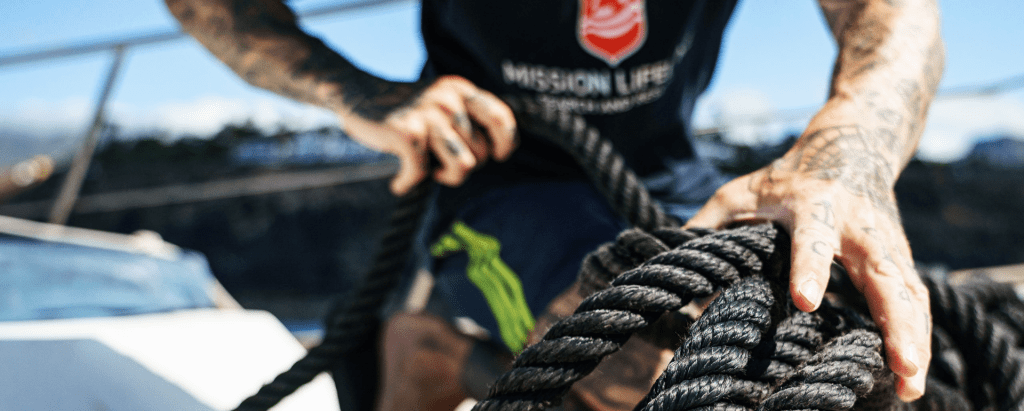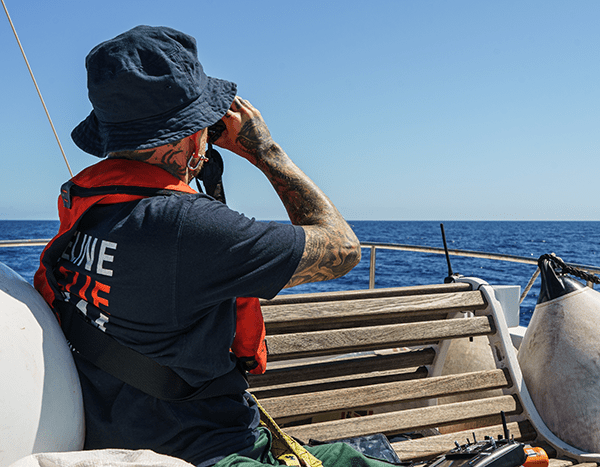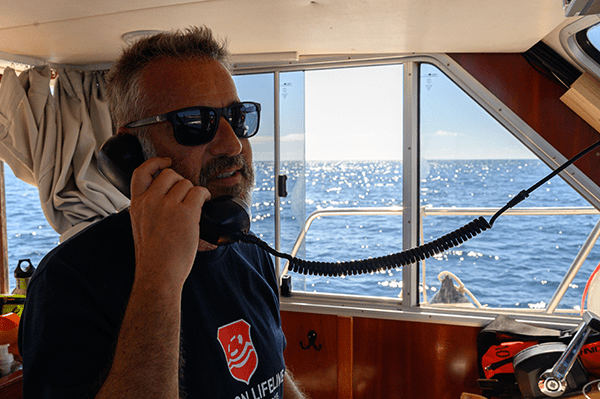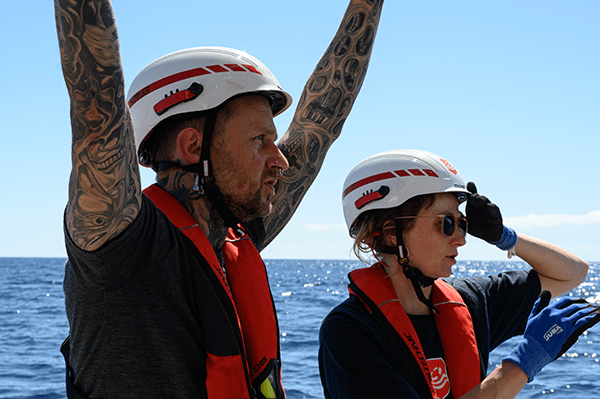
Hardly any chance to find boats missing in the Atlantic – nevertheless we are looking for
Hardly any chance to find boats missing in the Atlantic – nevertheless we are looking for
Between the MARWA and the many other reported positions of the boats, there are several days’ travel in each case – the search area is simply huge, the distances very large. We can hardly imagine ourselves how it must be to sit for days on one of the wooden boats, to have no possibility to sleep or to eat sensibly, or to be able to use a toilet and to always have the uncertainty and the fear of whether one will ever have solid ground under one’s feet again.
After a weather-related stopover on El Hierro, we first returned to Tenerife where minor repairs were made to the boat. After three days in the harbor we could start again although the weather was going to get much worse. The conditions on the Atlantic are rough. Even our small boat can quickly reach its limits there. But while we are equipped with navigation, radio and safety technology, the wooden boats with refugees often sail without any equipment, navigate by the stars or on sight and good ‘luck’. It is almost a miracle that now and then boats make it to the islands.

Two weeks later, it is already mid-May, the crew of the Marwa finishes its operation on the Atlantic. We could not find a boat in distress. However, we heard again regularly over the radio from people who dare to make the dangerous crossing. Again we heard that the rescue control center asks all ships in the region to keep an intensive lookout, because one or the other boat does not have accurate position data. We once heard of 47 refugees, once 94, once 36 people who were fortunately rescued by Salvamento Maritimo. And also on the way back we heard again the radio message that the boat, which started on 22.04.2023 from Dakar in Senegal, is still searched. For 16 days now. With it the people who have set out to start a new life. Will they ever be found? We do not know.


We pack our things and will now fly back home. With the knowledge that people have to fight for their survival here every day. They can’t just get on a plane. The European isolationist policy forces them to take the dangerous route across the water and every day more than four people lose their lives here.

Credits: Hermine Poschmann, Anja Taubert


